Covid: More than 10m people fully vaccinated in UK
- Published
- comments
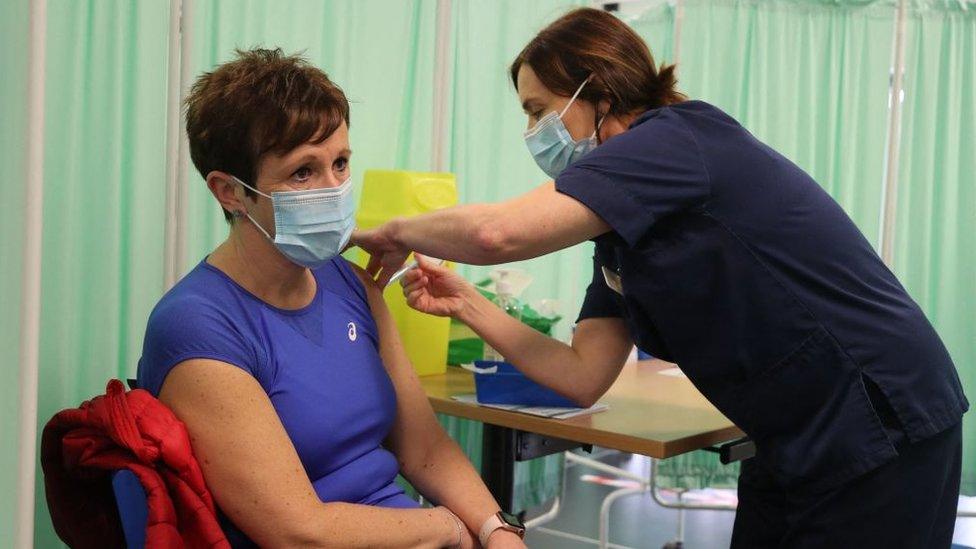
More than 10 million people in the UK have received a second dose of a Covid-19 vaccine, according to the latest government figures.
It means more than 19% of UK adults are now fully vaccinated, while nearly 33 million people have had their first dose.
Prime Minister Boris Johnson described the news as a "remarkable milestone".
Also hailing the "terrific milestone", the health secretary urged people to get the jab "as soon as possible".
"Second doses are crucial to maximising the strength and duration of your protection from Covid-19," he added.
Sir Simon Stevens, chief executive of NHS England, said: "The success of the NHS vaccination programme is not a happy accident. It is down to careful planning coupled with the sheer hard work and determination of doctors, nurses and countless other staff ably assisted by volunteers and many others."
It comes as the UK recorded four deaths within 28 days of a positive test - the lowest daily figure since 7 September, although the number of deaths recorded on Mondays and over the weekend tend to be lower because of reporting delays.
There were also 2,963 new cases, according to the latest government figures, external.
Mr Hancock told the Commons the government was "on track" to offer a first dose to all adults in the UK by the end of July and uptake had been "astonishingly high", at 94% for over-50s.
However, he said the vaccination rate for care home staff was currently below 80% in more than half of all local authority areas. As a result, he said, the government had launched a consultation into whether care home providers for older adults should only deploy workers who have received their Covid jab, unless they have a medical exemption.
People aged 45 and over are now being offered the vaccine in England and Scotland. In some areas of Wales 40-49 year-olds are being invited, while in Northern Ireland vaccine appointments are now being made available to a limited number of 35-39 year olds.
The rollout will continue to prioritise groups by age, according to advice from the Joint Committee of Vaccination and Immunisation (JCVI).


The 10 million mark for second doses is a great milestone.
But the rapid acceleration in second doses has come at a cost to first doses - and this spells trouble for the government's ambition to offer every adult in the UK a jab by the end of July.
Currently the UK is doing just over 100,000 first doses a day on average, that is down from 500,000 a month ago.
There was always going to be some drop-off. But on that trajectory just over half of under-50s will get a first dose by the end of July.
Take-up is predicted to be lower in the younger age groups than it has been in the older ones so that shortfall may not be as bad as it first looks.
What is more, there is the hope vaccine supplies will increase. More doses of Moderna may become available, while there is hope the Novavax jab, which is being made in the UK, could come into play in May.
Nonetheless, it is another reminder that the vaccine programme still has many hurdles to cross.
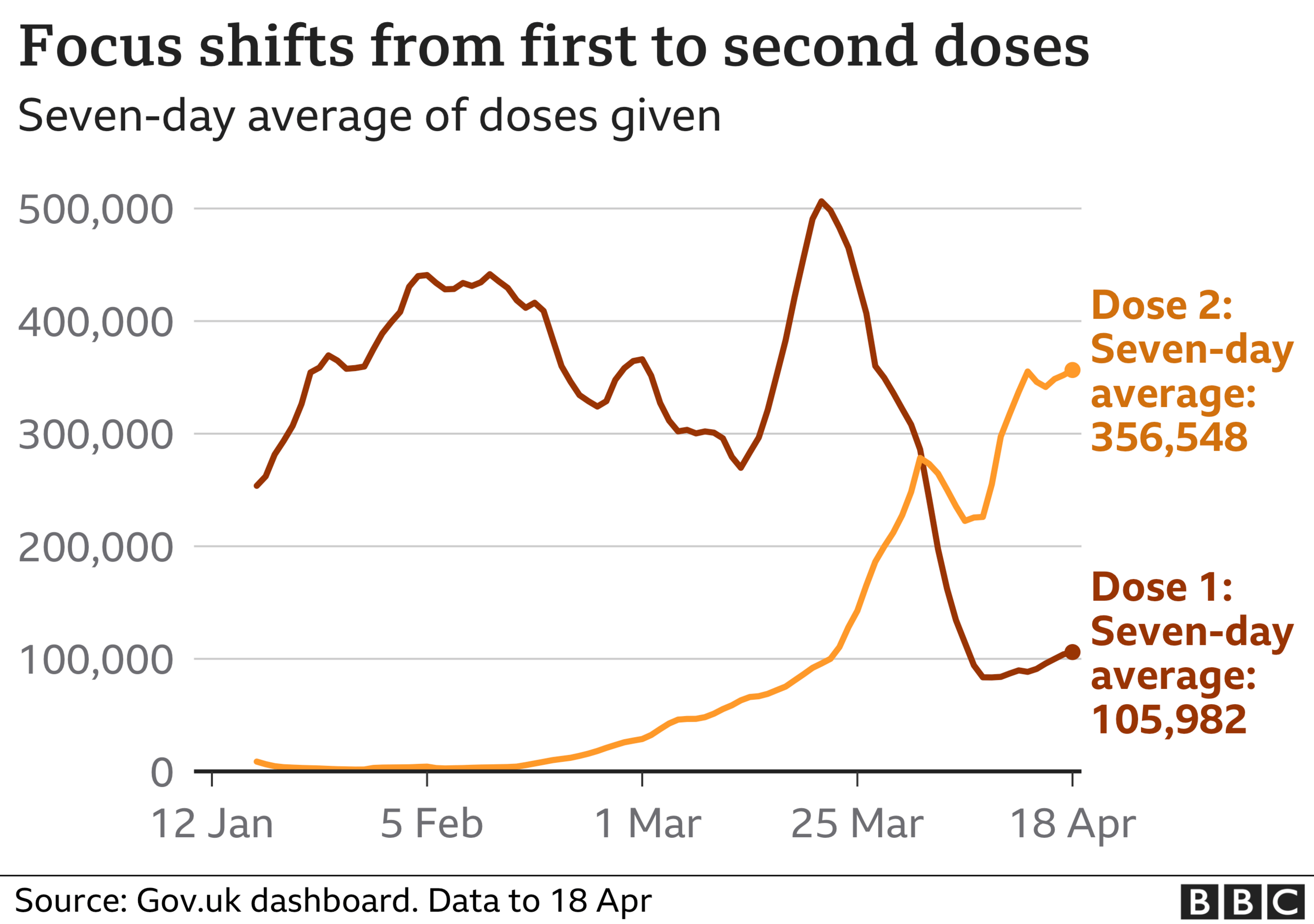

It comes after the government said all over-50s and those in high-risk groups in the UK had been offered a first dose.
Earlier this month the UK began to roll out the Moderna vaccine, alongside the Oxford-AstraZeneca and Pfizer-BioNTech jabs.
All under-30s in the UK will be offered an alternative to the AstraZeneca jab due to evidence linking it to rare blood clots.
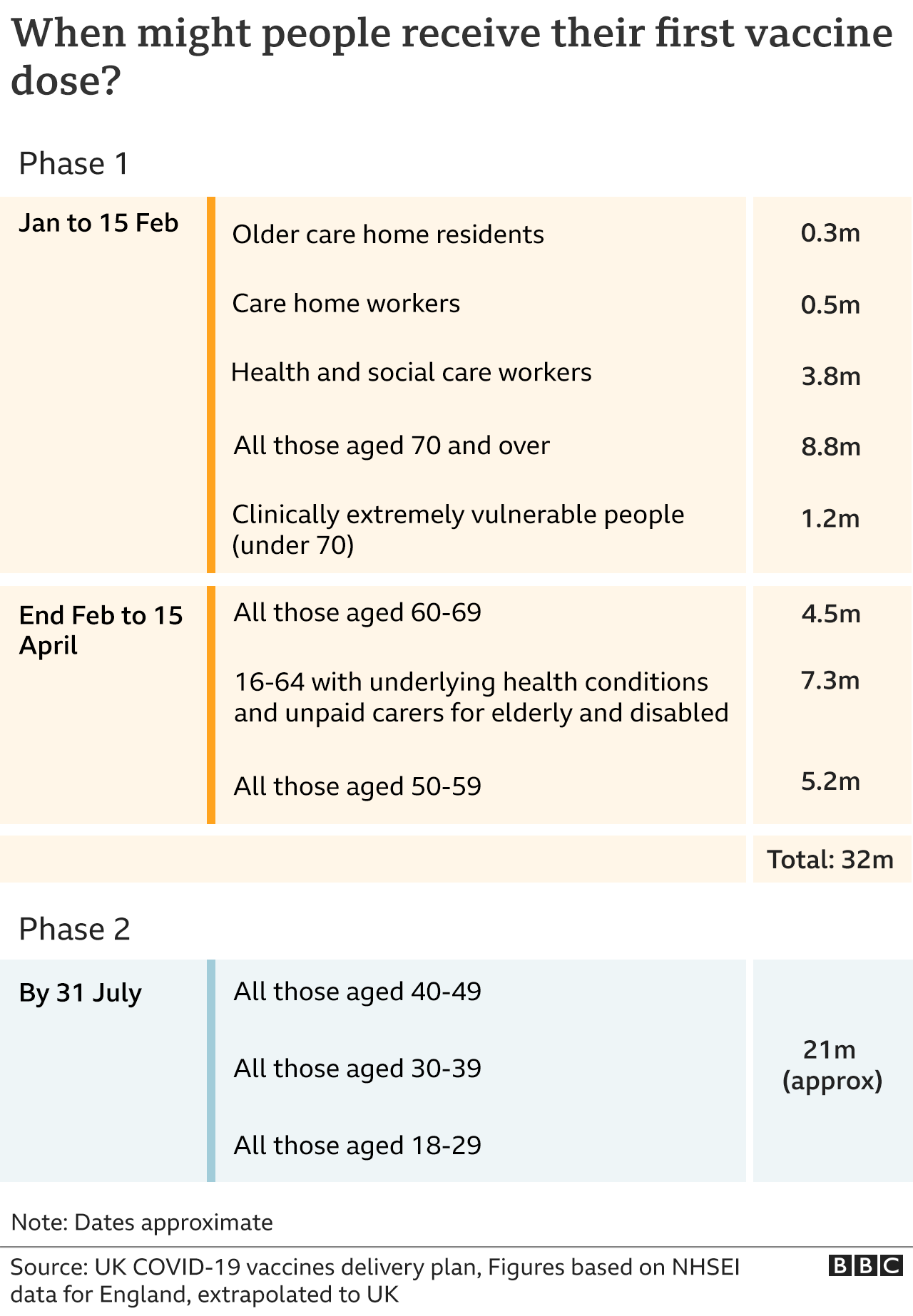

Meanwhile, Mr Hancock announced that India would be added to the travel red list from 04:00 BST on Friday. It means anybody who is not a UK or Irish resident or British citizen cannot enter the UK if they have been in India in the last 10 days and any other arrivals will need to quarantine in a hotel for 10 days.
Earlier, the prime minister cancelled a trip to India, which had been due to take place on 26 April, amid rising cases there.
Health officials in the UK are investigating whether a variant first found in India spreads more easily or is resistant to treatments or vaccines.
Mr Hancock said there had now been 103 cases of this variant detected in the UK, with the vast majority linked to international travel.
He said there had also been 557 cases of the variant first found in South Africa detected in the UK since December.
The health secretary said the government was "ramping up" plans for a booster shot to ensure vaccines stayed "ahead of the virus".
"We will be working with our current vaccine suppliers and new suppliers, like the CureVac partnership, to work out which vaccines will be effective as a booster shot and to design new vaccines specifically targeted at the variants of concern," he added.

LOOK-UP TOOL: How many cases in your area?
LOCKDOWN RULES: What are they and when will they end?
SOCIAL DISTANCING: How can I meet my friend safely?


JUST ONE THING TO REDUCE YOUR STRESS?: Why a cold shower might have a positive impact
LONG COVID: What does it feel like to lose your sense of smell and taste for months?

Related topics
- Published13 April 2021
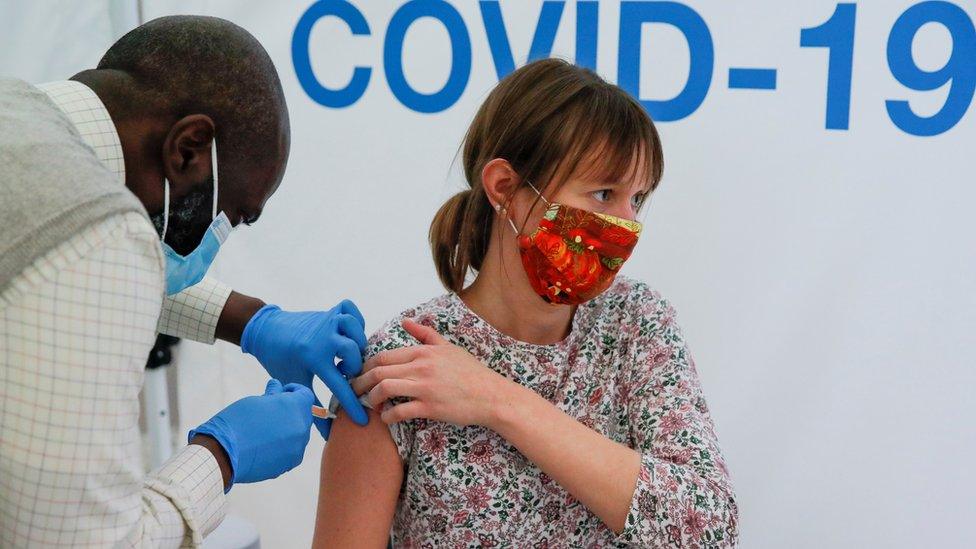
- Published13 April 2021
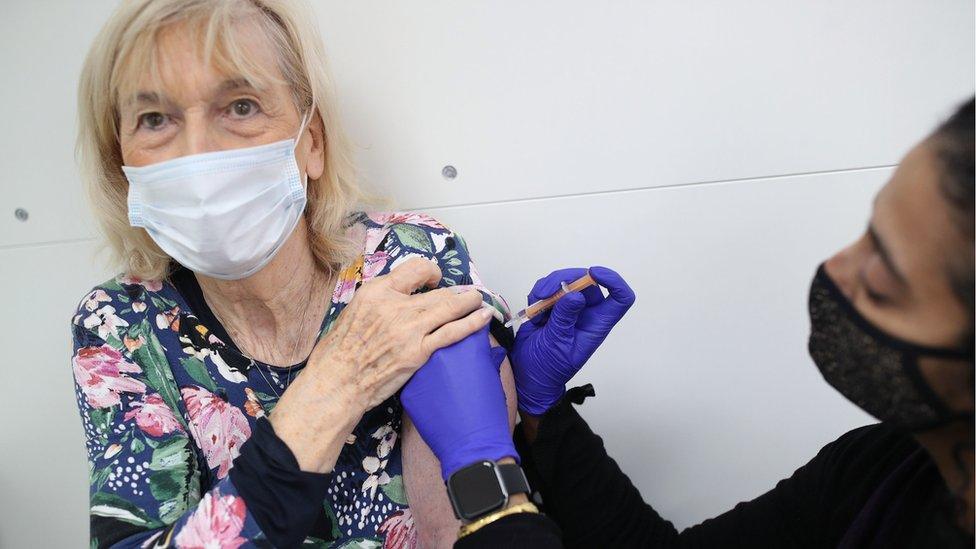
- Published11 April 2021
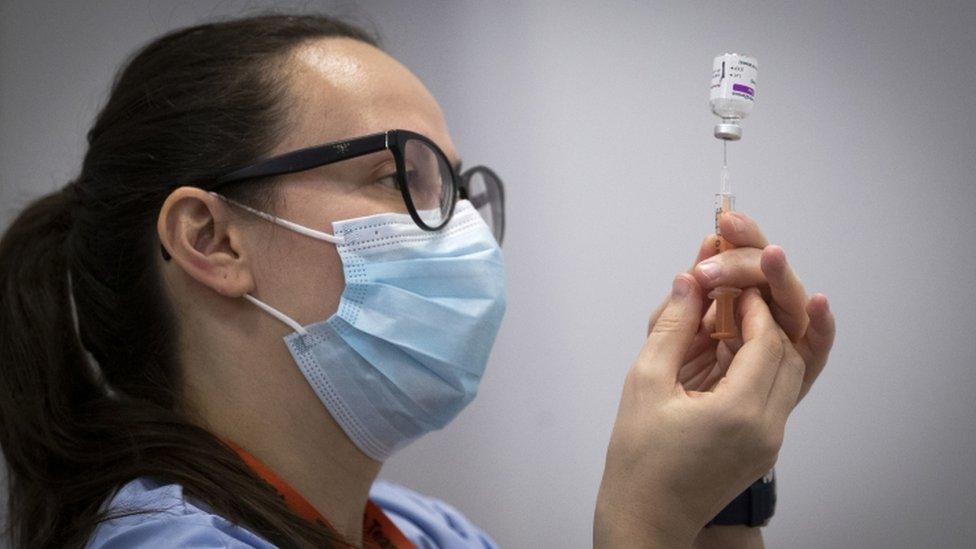
- Published2 April
